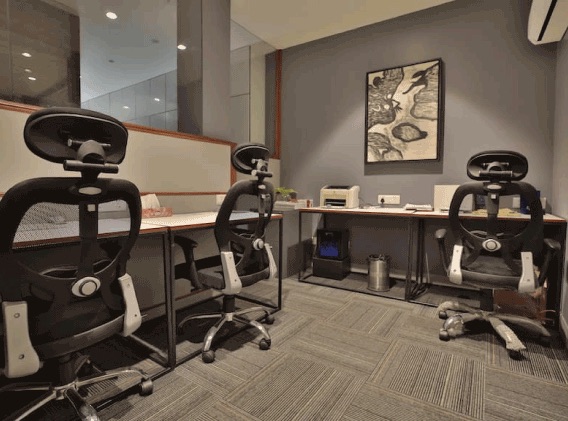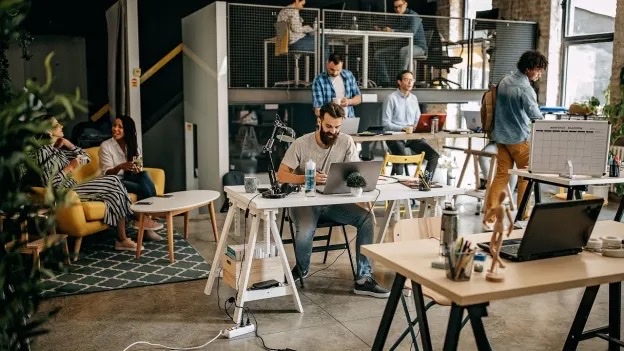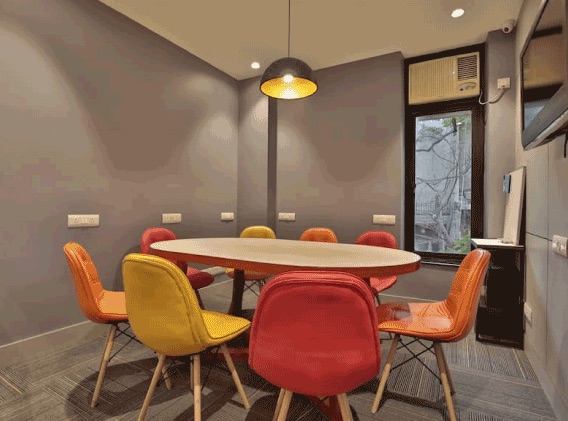ABL Workspaces Raises Funding To Expand Seating Capacity In NCR

-
ABL Workspaces Raises Funding To Expand Seating Capacity In NCR
 29 Nov. 2021
ABL Workspaces
29 Nov. 2021
ABL Workspaces 06:52 AM
06:52 AM
Welcome to ABL Workspaces Raises Funding To Expand Seating Capacity In NCR
Coworking and flexible working space provider ABL Workspaces has raised INR 15 Cr ($1.9 Mn) in Series A funding from Canada-based Ethik Inc.
Founded in 2017 by Akshita Gupta, Delhi-based ABL Workspaces offers coworking spaces with premium interiors to startups, working professionals, and mid-sized companies in nine locations across Delhi-NCR. Its customers include Kotak Bank, Simba Beer, Netambit, Clovia among others. According to the startup, it has seen a 20-50% clientele surge in the past six months.
The startup will utilise the freshly-raised capital towards expanding its seating capacities and centres across the capital region. It will also use the funds raised to develop its team and technology.
“We believe that co-working is a game-changer for the entrepreneurial community. The segment is promising and has attracted the attention of potential investors. ABL Workspaces offers cost-effective, premium, tech-enabled co-working spaces,” said Deepak Goel, founder at Ethik Inc.
Recommended For You:
Deal Or No Deal? The Murky YoloBus Distress Sale To EaseMyTrip
The shift towards more accessible, flexible and Premium working spaces has contributed to the success of coworking startups in the past few years. The disruption caused by the pandemic is being seen as a temporary setback by many in the industry, who are expecting a resurgence once the county’s economy recovers.
Many companies, especially startups, struggle with the burden of long-term leases that come with heavy security deposits—as these tend to take away from the cash flow of the business. This could even be a reason for traditional companies to consider coworking spaces as a viable option.
This is not to say that startups in the space will continue to function the same way it has before—the pandemic and its ramifications have forced a fundamental change in the way coworking spaces operate. Earlier, their main proposition was the efficient use of space. Going forward, the need for social distancing will mean each seat will occupy a larger area.
Concerns about health and safety are also expected to create a demand shift towards private spaces. As a result, coworking startups might have to convert open-plan spaces into separate private spaces.
Another player in the coworking space, WeWork India had raised INR 200 Cr in debt and equity in April this year, hoping to turn profitable after a long and tumultuous period when the startup made the news for all the wrong reasons.
Recent News

Welcome to Corporate shift to hybrid work shores up demand for co-working spaces
ABL Workspace that has so far been primarily operating out of Delhi-NCR with 2,500 seats is now targeting adding 15,000 seats across the country by March 2023. Mumbai, Pune, Bengaluru and Hyderabad are some of the major markets it is eyeing. Besides, the firm is keen on foraying into tier two and three cities given that tech companies have started booking space in smaller cities to save costs. “Coworking will be a good solution for such budgeted problems,” its founder and CEO Akshita Gupta tells Fortune India. It just closed a deal with Kotak Mahindra Bank too.

Welcome to What are the Union Budget 2022 expectations of corporate leaders?
Akshita Gupta, CEO, ABL Workspace, “The coworking segment has grown exponentially over the years and has had a major impact on the performance and utilisation of commercial real estate. I feel now is the time when we should keep into consideration this very aspect and ensure progressive policy reforms to boost the market’s growth. I would want to put forth a humble request to the Finance Ministry to recognizing the coworking space under schemes such as REIT, provide tax benefits and consider reducing the TDS deduction rates to upscale the segment. It would be great if govt can consider bringing coworking spaces into the 2% TDS bracket from the present 10% slab. This will not only boost the market’s growth but will further allow the coworking spaces seamlessly manage the cash flows since it is a service-based segment. I strongly feel that these reforms if introduced will play a major role in driving the growth of the real estate sector in the times to come. Talking from start-ups POV, it is usually entrepreneurs from the early and mid-start-ups that prefer coworking spaces. However, costings like registration charges and stamp duty at registrar offices are borne by the coworking offices and if government can reduce these charges, then it would directly benefit the end-users as they will have to spend less for the services. I am also of the view that if the requisite financial assistance can be provided to the start-ups, then it will indirectly help in driving the growth of the coworking spaces as well.”

Welcome to 2022: The beginning of a golden era of co-working spaces?
According to a Cushman & Wakefield report, coworking operators expanded their portfolio aggressively last year and took on lease 21 per cent more office area - 4.91 million square feet in 2021 from 4.05 million square feet in the previous year - across the top eight cities of Bengaluru, Hyderabad, Pune, Mumbai, Delhi-NCR, Chennai, Kolkata, Ahmedabad to meet the rising demand for flexible workspaces from corporates amid the pandemic.
According to another report by JLL, India's coworking space market is likely to cross 50 million square feet by 2023.
Industry experts say that the sector is only poised to grow stronger.

Welcome to Why Co-working Sector Will Emerge Stronger In 2022
The co-working space has undergone various changes since its inception in the late 2000s. With the death of cubicles and open floorplans gaining popularity to working spaces providing employees with foosball, table tennis and pool tables. But this was before COVID-19, the pandemic that has redefined the concept of working especially co-working spaces in past two years. It has not only forced the employers to change their work policies and strategies but has also been giving preference to hybrid model to perfectly fit into the new normal world.


